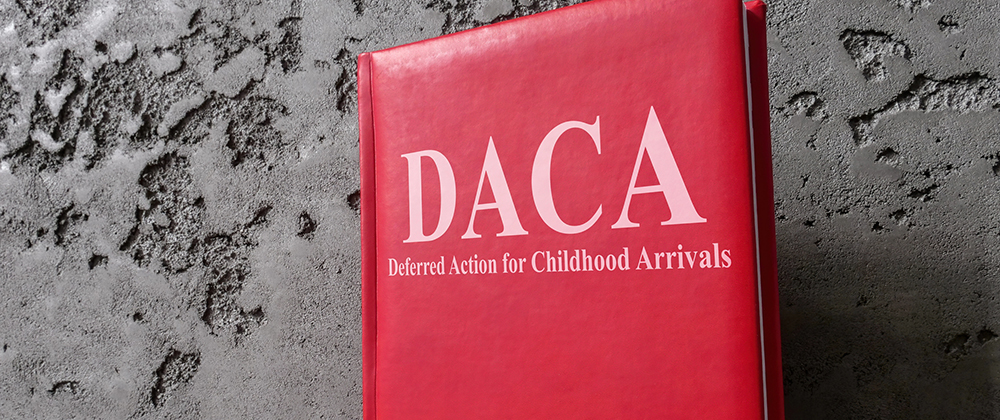The new administration is seeking expansion of expedited removal in its efforts to deport foreign nationals quickly and on a large scale. In order to do so, it seeks to take away due process rights afforded under the US Constitution. If this change is made permanent, it will substantially alter rights that have long been afforded to individuals in the United States without documentation that have historically been viewed as under Constitutional protections. The ability to strip a right to a fair hearing before a judge, with the right to counsel and an appeals process, would allow the Trump administration great powers to easily deport a vast amount of people.
While this change has not sparked the same publicity as the administration’s attempt to end birthright citizenship, if the change remains, the expansion of expedited removal could profoundly reshape the way immigration law in the United States is implemented and will impact countless lives.
The ACLU has filed a lawsuit to stop the changes and in response to the government’s attempt to alter procedural rules and is poised to become a landmark case, potentially reaching the Supreme Court.
Understanding Expedited Removal
Effective January 21, 2025, DHS immediately expanded its use of expedited removal.
Expedited removal is a process that grants low-level immigration officers within the Department of Homeland Security (DHS) the authority to swiftly deport individuals from the United States with minimal review. This process bypasses the traditional immigration court system, raising concerns about due process and the potential for errors leading to the wrongful deportation of individuals who have a legitimate right to remain in the U.S. Since expedited removal’s inception into the law, it has been only applied to individuals at the border close to their arrival. Because the United States has greater authority and powers to keep its borders secure, it has passed Constitutional muster. The change would allow this process to be expanded to individuals inside its borders.
Previously, expedited removal was only pursued against individuals who were within 100 miles of the US border and within 14 days of their arrival into the United States. The government now seeks to use expedited removal anywhere in the United States against any “undocumented” person who is unable to prove that they have been in the United States continuously for two years. DHS has announced that it even plans to go after individuals who legally entered the United States through a parole program using this power. The ONLY expectation will be if someone fears persecution and passes an administrative hearing demonstrating a credible fear of returning and thereafter will be placed in removal proceedings.
The change will be profound. Under the current system, the US government has the burden of proving that an individual should properly be in proceedings and is removable. Under the new system, the burden shifts to the foreign nationals to prove that they have been in the United States for two years. This is done without counsel, without a Judge and without an appeals process. If it is not stopped by the courts, it will facilitate the deportation of many individuals.
Seeking to stop the implementation of the expanded expedited removal procedures
The changes not only expose individuals to removal without constitutional protections, but legally it affords the US government vast new powers that will be largely unchecked. As a result a lawsuit was filed to enjoin the government from executing these changes. The crux of this lawsuit lies in the assertion that the expansion of expedited removal violates fundamental legal principles enshrined in the US Constitution and its amendments as well as within the Immigration and Nationality Act (INA), and the Administrative Procedure Act (APA).
The plaintiffs, a coalition of immigrant rights groups, argue that expedited removal in its expanded form impacts individuals inside the United States, some with long-term ties to this country, and is a flawed process that will unjustly strip away due process protections, violate long held views of who is afforded constitutional protections and thus will result in the deportation countless individuals without proper safeguards, including potentially U.S. citizens and individuals with valid fears of persecution. The lawsuit contends that new rules will undermine due process, the cornerstone of American justice, by denying individuals a fair opportunity to present their case and challenge their deportation.
Key Arguments in the Lawsuit
- Violation of the Immigration and Nationality Act: The plaintiffs argue that expedited removal, as it currently stands, is not authorized by the Immigration and Nationality Act. They assert that the Act only allows for expedited removal of individuals who are inadmissible at the time of entry into the United States. The lawsuit highlights that the expansion of expedited removal to individuals apprehended within the U.S. interior, who may have resided in the country for a considerable period, contradicts the original intent and scope of the law.
- Violation of the Administrative Procedure Act: The plaintiffs contend that the expansion of expedited removal was implemented without following the proper procedures required by the Administrative Procedure Act. They argue that the government did not provide adequate notice or opportunity for public comment before expanding the program. This lack of transparency and public engagement, they argue, undermines the democratic process and raises concerns about the legality of the policy change.
- Violation of the Due Process Clause: The plaintiffs assert that expedited removal violates the Due Process Clause of the Fifth Amendment, which guarantees that no person shall be deprived of life, liberty, or property without due process of law. They argue that expedited removal does not provide individuals with a meaningful opportunity to be heard before they are deported. This lack of due process, they contend, leaves individuals vulnerable to arbitrary and potentially wrongful deportation, with limited recourse to challenge their removal.
Concerns and Criticisms Surrounding Expedited Removal

The lawsuit also highlights several concerns and criticisms surrounding expedited removal, including:
- Lack of Access to Counsel: Individuals subject to expedited removal often lack access to legal counsel, leaving them to navigate the complex immigration system alone. This lack of representation can severely disadvantage individuals and increase the risk of errors and wrongful deportations.
- Limited Opportunity to Gather Evidence: The expedited nature of the process leaves individuals with little to no time to gather evidence to support their case, further undermining their ability to defend themselves against deportation.
- Potential for Abuse and Misconduct: The lack of oversight and minimal review in expedited removal creates opportunities for abuse and misconduct by immigration officers. This can lead to individuals being intimidated, coerced, or denied their basic rights during the process.
- Changes the Burden of Proof: The US government in removal proceedings must prove that the foreign national is indeed removable. The change would require the foreign national to prove that they have been in the United States for two years.
Potential Impact and Significance
The US government’s proposed changes will significantly impact the U.S. immigration system, its enforcement and the power of the Executive branch, stripping the power of individuals to present their case in court. The lawsuit seeks to stymie this sea change in the way the U.S. government deports people.
This critical and important lawsuit seeks to stop this change to continue the procedural safeguards to individuals facing deportation, ensuring that they have a fair chance to present their case and avoid wrongful deportation.
Looking Ahead
The lawsuit is likely to wind up at the Supreme Court. If it does, the Court will have to decide whether the expanded expedited removal is indeed a lawful and constitutional way to deport people from the United States.
The Court’s decision could have far-reaching implications for the future of immigration law in the U.S.
In Conclusion
The lawsuit challenging the expansion of expedited removal is a significant legal battle. It raises critical questions about due process, fairness, and the protection of individual rights within the immigration system.





